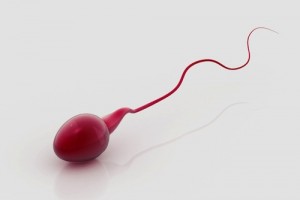Cell phones, an integral part of everyday life, is also known for some health hazards. The radiation from cell phones is a major cause of concern. This new study, led by researchers at the University of Exeter, highlights the strong association between cell phone radiation and male infertility.
Tag: male infertility
The Secret of Fertile Sperm
To better understand the causes of male infertility, a team of Bay Area researchers is exploring the factors, both physiological and biochemical, that differentiate fertile sperm from infertile sperm.
Bariatric Surgery Does Not Improve Male Infertility
The effect of obesity on male infertility has been well established.
Male Infertility Treatable in 95% of Cases
Dr. Molina Dayal, is the Medical Director of Sher Fertility St. Louis. She was a guest on the noon show Tuesday, to discuss male infertility. According to medical statistics, nearly one third of all infertility cases, male infertility is the problem.
Baldness Drug May Depress Sperm Count
Men using finasteride to treat baldness had a dramatic increase in sperm count following discontinuation of the drug, according to a review of records at male infertility clinic.
AUA 2013: Early Steps Taken in Using Stem Cells for Infertility
Wake Forest University researchers have conducted early, pre-clinical work that they say supports further research on the use of spermatogonial stem cell (SSC) transplantation as a potential treatment for male infertility.
Male Infertility Often ‘OverLooked’ by Physicians
Male infertility may account for up to 50% of a couple’s inability to conceive, with multiple factors potentially contributing to this problem, a speaker said here.
Saturated fat tied to sinking sperm counts in Danes
 NEW YORK (Reuters Health) – Saturated fats, like those found in rich cheeses and meats, may do more than weigh men down after a meal – a new study also links them to dwindling sperm counts.
NEW YORK (Reuters Health) – Saturated fats, like those found in rich cheeses and meats, may do more than weigh men down after a meal – a new study also links them to dwindling sperm counts.
Researchers found that young Danish men who ate the most saturated fats had a 38 percent lower concentration of sperm and 41 percent lower sperm counts in their semen than those who ate the least fat.
“We cannot say that it has a causal effect, but I think other studies have shown that saturated fat intake has shown a connection to other problems and now also for sperm count,” said Tina Jensen, the study’s lead author from Rigshospitalet in Copenhagen.
The new research is not the first to connect diet and other lifestyle factors to sperm production and quality.
In 2011, Brazilian researchers found eating more grains – such as wheat, oats or barley – was associated with improved sperm concentration and motility, and fruit was also linked to a speed and agility boost in sperm (see Reuters Health story of November 18, 2011 here: http://reut.rs/TBfCrA).
But that study and most others looked at these associations using data on men seeking fertility treatments, which may not be representative of all men. Read full article.
Advice for Men Struggling With Infertility
 (NewsUSA/SpermCheck.com) – While women are often the first to undergo a battery of tests when conception is slow to happen, almost half of all infertility problems are directly attributed to the male. Low sperm count is the most common culprit, so analyzing sperm count is considered a key first step by infertility specialists. However, a new survey conducted for SpermCheck Fertility, the only FDA-approved at-home sperm count screening test, finds that only 17 percent of men ever get tested.
(NewsUSA/SpermCheck.com) – While women are often the first to undergo a battery of tests when conception is slow to happen, almost half of all infertility problems are directly attributed to the male. Low sperm count is the most common culprit, so analyzing sperm count is considered a key first step by infertility specialists. However, a new survey conducted for SpermCheck Fertility, the only FDA-approved at-home sperm count screening test, finds that only 17 percent of men ever get tested.
While a majority of men are not getting tested, according to Pamela Madsen, fertility advocate and founder of The American Fertility Association, they are also doing little to prepare for conception. She says there are several things men can do to help boost fertility naturally. Read full article.
Sperm Length Variation Could Mean Fertility Problems
 Sperm length variation is an indication of problems with fertility, and men who have a broad range of different sperm lengths, especially in the flagellum, have a decreased chance of being able to reproduce and lower numbers of sperm that can swim well , according to a new study conduction by Brown University researchers and published in the journal Human Reproduction.
Sperm length variation is an indication of problems with fertility, and men who have a broad range of different sperm lengths, especially in the flagellum, have a decreased chance of being able to reproduce and lower numbers of sperm that can swim well , according to a new study conduction by Brown University researchers and published in the journal Human Reproduction.
Jim Mossman, lead author of the study and a postdoctoral scholar at Brown University, commented:
“Our study reveals that men who produce higher concentrations of competent swimming sperm also demonstrate less variation in the size and shape of those sperm. It suggests that in some cases, tests are working more optimally to produce high numbers of consistently manufactured sperm, and vice versa.”
Mossman and his team measured the flagella, middles, and heads of 30 sperm per person from 103 men who were chosen at random out of 500 individuals who had previously been enlisted in another substantial fertility study.
The team also measured other sperm factors that the WHO (World Health Organization) claims are important fertility indicators, such as concentration and motility. Read full article.